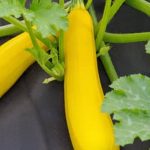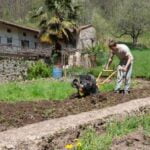Can you use reclaimed water in vegetable gardens? Reclaimed water is an alternative water source that has gained attention for its potential in promoting sustainability and conservation in gardening practices. Understanding the source and treatment process of reclaimed water is essential for determining its feasibility and safety for use in vegetable gardens.
Reclaimed water, also known as recycled or reuse water, refers to treated wastewater that has undergone a rigorous purification process to remove contaminants and pathogens. This process involves various treatment methods, including filtration, disinfection, and advanced purification technologies, to ensure that the reclaimed water meets strict quality standards. By understanding how reclaimed water is sourced and treated, gardeners can make informed decisions about its suitability for their vegetable gardens.
Using reclaimed water in vegetable gardens offers several benefits, including reduced demand on freshwater resources and minimized environmental impact. However, concerns regarding potential risks to human health and the environment have sparked debates about the safety of using reclaimed water in agricultural practices. Addressing these concerns requires careful consideration of regulatory guidelines, best practices for application, and comparative analysis with alternative water sources.
Benefits of Using Reclaimed Water in Vegetable Gardens
Reclaimed water, also known as recycled water, is wastewater that has undergone a treatment process to remove contaminants and make it suitable for various non-potable uses. This includes irrigation for agricultural purposes, such as watering vegetable gardens. The treatment process typically involves physical, biological, and chemical processes to remove impurities and pathogens, resulting in water that meets specific quality standards for its intended use.
Using reclaimed water in vegetable gardens offers several benefits in terms of conservation and sustainability. Firstly, it reduces the demand for freshwater resources, especially in areas where water scarcity is a concern. By utilizing reclaimed water for irrigation, gardeners can help preserve precious drinking water supplies for essential human needs. Additionally, this practice can contribute to the overall sustainability of agricultural practices by promoting responsible water use.
In addition to conservation efforts, using reclaimed water in vegetable gardens can also lead to environmental benefits. Many wastewater treatment facilities discharge treated effluent into rivers or oceans, which can have ecological impacts. By diverting this water for agricultural use instead, it can help reduce the potential harm to natural ecosystems while simultaneously providing a valuable resource for plant growth.
| Benefit | Description |
|---|---|
| Conservation | Reduces demand for freshwater resources and preserves drinking water supplies. |
| Sustainability | Promotes responsible use of water resources and supports environmentally-friendly agricultural practices. |
| Environmental Impact | Reduces potential harm to natural ecosystems by diverting treated effluent from wastewater treatment facilities. |
Potential Risks and Concerns
Reclaimed water can be beneficial for vegetable gardens in terms of conserving natural resources and promoting sustainability. However, it is important to address the potential risks and concerns associated with using reclaimed water in vegetable gardens.
One of the primary concerns regarding the use of reclaimed water in vegetable gardens is the presence of contaminants. While reclaimed water undergoes treatment processes to remove impurities, there is still a risk of residual chemicals, pathogens, and other pollutants that can pose health risks to both consumers and the environment. For example, trace amounts of heavy metals or pharmaceuticals may still be present in the reclaimed water, which could potentially accumulate in the soil and affect plant growth.
In addition to potential health concerns, there are also environmental implications to consider when using reclaimed water in vegetable gardens. Runoff from irrigated gardens has the potential to leach contaminants into surrounding soil and groundwater, impacting local ecosystems. Furthermore, if not used properly, there can be an increased risk of exposure to pathogens and disease-causing organisms for those working or spending time in treated landscapes irrigated by reclaimed water.
| Contaminant | Potential Risk |
|---|---|
| Heavy Metals | Accumulation in soil impacting plant growth |
| Pathogens | Increased risk of disease for individuals exposed to treated landscapes |
Addressing these potential risks and concerns requires proper monitoring, testing, and regulation of reclaimed water use in vegetable gardens. It is essential for gardeners to adhere to guidelines and standards set by regulatory authorities in order to ensure safe and responsible application of this alternative water source.
Guidelines and Regulations
Regulatory Compliance and Permitting
Using reclaimed water in vegetable gardens is subject to specific guidelines and regulations set by local, state, and federal authorities. Before implementing reclaimed water usage, it is crucial to obtain the necessary permits and comply with the relevant regulations. This may involve meeting certain quality standards, monitoring and reporting requirements, and adhering to specific application methods. Failure to comply with these regulations can result in fines, penalties, or even legal actions.
Health and Safety Considerations
One of the primary concerns related to using reclaimed water in vegetable gardens is the potential health risks associated with microbial pathogens or chemical contaminants. It is essential to mitigate these risks by following safety protocols such as proper treatment processes, adequate storage facilities, and appropriate irrigation techniques. Additionally, it is important to educate gardeners and consumers about the safe handling of produce grown with reclaimed water to minimize any potential health threats.
Environmental Impact Assessment
In addition to health considerations, the environmental impact of using reclaimed water in vegetable gardens must also be evaluated. This includes assessing the potential effects on soil quality, groundwater contamination, and overall ecosystem health. Environmental impact assessments are essential for ensuring that the use of reclaimed water aligns with sustainability goals and does not jeopardize natural resources. By conducting thorough assessments, gardeners can identify any potential negative impacts and implement mitigation strategies accordingly.
Best Practices for Using Reclaimed Water in Vegetable Gardens
When using reclaimed water in vegetable gardens, it is important to follow best practices to ensure the safety and effectiveness of its application. By implementing these tips, gardeners can maximize the benefits of reclaimed water while minimizing potential risks.
To use reclaimed water in vegetable gardens safely and effectively, consider the following best practices:
- Understand the Quality of Reclaimed Water: Before using reclaimed water, it is essential to understand its quality and any specific contaminants it may contain. Some contaminants may be safe for certain plants but harmful to others.
- Implement Proper Irrigation Methods: Utilize drip irrigation or soaker hoses to apply reclaimed water directly to the root zone of plants. This helps minimize contact between the water and edible plant parts, reducing the risk of contamination.
- Maintain Adequate Soil Drainage: Ensure that soil has proper drainage to prevent waterlogged conditions, which can lead to potential health hazards for both plants and consumers.
Additionally, gardeners should regularly monitor soil and plant health when using reclaimed water in vegetable gardens. By paying attention to any changes in growth or appearance, they can address any potential issues promptly.
Adhering to these best practices can help mitigate concerns surrounding the use of reclaimed water in vegetable gardens and ensure that it is applied safely and effectively.
Using reclaimed water in vegetable gardens offers a sustainable alternative for irrigation while conserving precious freshwater resources. However, addressing potential risks and adopting best practices is crucial for safe and effective application. By understanding the quality of reclaimed water, implementing proper irrigation methods, maintaining adequate soil drainage, and monitoring soil and plant health, gardeners can confidently use this alternative water source for nurturing healthy vegetable gardens.
Case Studies and Success Stories
When considering using reclaimed water in vegetable gardens, it is important to look at real-life examples of successful implementation. Case studies and success stories can provide valuable insights into the benefits and potential challenges of using reclaimed water for growing vegetables. Here are some examples of how reclaimed water has been effectively used in different vegetable gardens:
- In a community garden in California, reclaimed water is used to irrigate a variety of vegetables such as tomatoes, peppers, and cucumbers. The garden has seen an increase in crop yield while reducing its reliance on potable water.
- A commercial organic farm in Arizona incorporates reclaimed water into its irrigation system for growing lettuce, spinach, and other leafy greens. This has helped the farm reduce its environmental impact and operate in a more sustainable manner.
- In Florida, a family-owned vegetable garden uses treated reclaimed water to grow a wide range of produce including carrots, radishes, and green beans. The use of reclaimed water has allowed the garden to thrive even during periods of drought.
These case studies demonstrate that reclaimed water can be effectively used in vegetable gardens to support healthy plant growth while conserving freshwater resources.
It is important to note that each of these success stories involved careful planning and adherence to guidelines for using reclaimed water in agriculture. By following best practices for application and monitoring water quality, these gardens were able to overcome potential risks and concerns associated with using reclaimed water for vegetable production.
Can you use reclaimed water in vegetable gardens? These examples illustrate that with proper management and consideration for health and environmental implications, it is indeed possible to utilize reclaimed water for nurturing vibrant and productive vegetable gardens.
Alternative Water Sources for Vegetable Gardens
When it comes to watering vegetable gardens, there are several options for sourcing water. While tap water and well water are commonly used, another alternative that is gaining attention is reclaimed water. In this section, we will compare reclaimed water with other water sources commonly used in vegetable gardens to determine its viability as an option.
Reclaimed Water vs Tap Water
Tap water is the most accessible and convenient source of water for vegetable gardens. However, it often contains added chemicals such as chlorine and fluoride, which may not be the best for the health of the plants. Reclaimed water, on the other hand, goes through a rigorous treatment process to remove impurities, making it a potentially safer option for irrigation.
Reclaimed Water vs Well Water
Well water is a natural source of water that is generally free from added chemicals. However, depending on the location and geological conditions, well water can contain high levels of minerals or contaminants that may negatively impact plant growth. Reclaimed water undergoes extensive treatment processes to ensure that it meets safety standards for use in irrigation.
Reclaimed Water vs Rainwater Harvesting
Rainwater harvesting involves collecting and storing rainwater for later use in watering plants. While rainwater is naturally pure and free from added chemicals, it may not always be available in sufficient quantities. Reclaimed water offers a consistent supply of treated water that can be used to supplement rainwater during dry periods.
Conclusion
In conclusion, the use of reclaimed water in vegetable gardens offers a sustainable and environmentally friendly alternative to traditional irrigation methods. Understanding the source and treatment process of reclaimed water is essential in addressing any potential risks and concerns related to its use. By following guidelines and regulations, gardeners can ensure the safe and effective application of reclaimed water in their vegetable gardens.
While there may be some apprehension about using reclaimed water due to health and environmental implications, case studies and success stories have shown that when best practices are followed, reclaimed water can indeed be used in nurturing healthy vegetable gardens. The conservation benefits of using reclaimed water cannot be overlooked, as it provides an alternative water source for vegetable gardens that reduces strain on freshwater resources.
Ultimately, comparing reclaimed water with other options for irrigation in vegetable gardens highlights its potential as a viable choice for gardeners seeking to promote sustainability. By understanding the potential of reclaimed water, individuals can contribute to the conservation of freshwater resources while still maintaining flourishing and healthy vegetable gardens.
As more research is conducted and best practices are refined, the use of reclaimed water in vegetable gardens will likely continue to gain traction as a practical and sustainable approach to irrigation.
Frequently Asked Questions
Can Reclaimed Water Be Used for Agriculture?
Reclaimed water can indeed be used for agriculture. With proper treatment and filtration, reclaimed water can be a valuable resource for irrigating crops, reducing the demand on freshwater sources.
What Are the Disadvantages of Reclaimed Water?
The disadvantages of reclaimed water include potential contamination from chemicals or pathogens if not properly treated. There is also public perception and acceptance to consider, as some people may be hesitant about using reclaimed water.
Can You Use GREY Water to Water Vegetables?
Grey water can be used to water vegetables, but it must be carefully managed and treated to ensure it is safe for use. Without proper treatment, grey water may contain contaminants that could pose a risk to plant health and human consumption.

If you’re looking to get into vegetable gardening, or are just looking for some tips on how to make your current garden better, then you’ve come to the right place! My name is Ethel and I have been gardening for years. In this blog, I’m going to share with you some of my best tips on how to create a successful vegetable garden.





